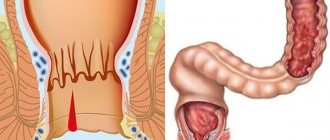Basic information
Stomach upset in children is quite common. As you know, the mentioned organ is one of the main elements that make up the human digestive system. Interruptions in its work negatively affect not only the patient’s well-being, but also his health in general.
Functional indigestion in children is a special condition in which one of the functions of the organ in question (for example, motor or secretory) is impaired. In this case, the small patient feels noticeable pain in the epigastrium and experiences a significant feeling of discomfort.
A characteristic feature of this condition is the absence of any structural changes in the gastric mucosa. Thus, the diagnosis is made based on a survey of the patient, existing symptoms, test results and other studies.
Poisoning and infection
When a rotavirus infection enters a child’s gastrointestinal tract, an upset stomach is always observed, accompanied by inflammation of the mucous membranes of the digestive organs.
This provokes diarrhea, vomiting, fever and aching pain in the stomach. In case of rotavirus infection, everything must be done to ensure that the child drinks as much fluid as possible. With diarrhea and vomiting, rapid loss of fluid occurs, especially when it comes to a child’s body. Young children sometimes forget to wash their hands before eating and after playing with other people's toys. This causes the penetration of pathogenic microbes into the body, which have a depressing effect on the functioning of the stomach. The well-known E. coli causes stomach upset. It is found in water that is not suitable for drinking, as well as spoiled food.
Types of disease, their causes
Indigestion in children, or rather its type, is determined by several factors that cause an imbalance in its functioning. Primary disorders are independent diseases. The main reasons for their development are the following:
- non-compliance with the correct diet (including overeating, irregular food intake, abuse of smoked, fatty and spicy foods, lack of microelements and vitamins in the body, adherence to strict diets, poor quality of chewing food);
- emotional or mental disorders;
- allergic reactions to any food products;
- taking potent medications that negatively affect the functioning of the stomach;
- tobacco and alcohol intoxication, as well as harmful working conditions;
- parasitosis;
- atmospheric influences (including radiation, increased air temperature, various vibrations);
- heavy physical activity.
Why does stomach upset occur in children? Secondary causes of this pathology are accompanying factors or consequences of other diseases of the internal organs. These include the following:
- vascular and heart diseases;
- disruptions in the functioning of the gastrointestinal tract;
- disturbances in the functioning of the endocrine system;
- chronic infections;
- organic or functional diseases of the central nervous system.
Most often, stomach upset in children occurs not because of one, but because of several factors that were mentioned above.
Prevention
Intestinal diseases are, first of all, diseases of “dirty hands”, so there are a number of preventive measures to minimize the risk of such a disease. As a preventive measure, teach your child to wash their hands after going out, before eating and before going to bed. Also wash fruits, vegetables and berries thoroughly before giving them to your child. Explain to children that swallowing water while swimming in pools and ponds is dangerous and under no circumstances should they drink water from the tap (well, pump, etc.). Let your child drink only boiled or bottled drinking water. When traveling to other countries, do not change your child’s diet. Fresh milk must be boiled before giving it to the child, and the eggs must be boiled well (at least 10 minutes). Do not let your baby eat unfamiliar fruits, vegetables, berries and mushrooms. Keep away from poisonous plants, wild animals and dirty water bodies.
Consultant: Irina Belova, pediatrician
Symptoms of the disease
Now you know what a pathological condition such as indigestion is. Symptoms in children, however, as in adults, can be different. In modern medicine, several clinical pictures of this disease are distinguished:
- dyspeptic;
- painful;
- mixed.
Typically, functional indigestion in children is accompanied by such unpleasant symptoms as pain in the epigastric region. At the same time, both children and adults talk about paroxysmal pain, which is usually concentrated in the navel area and is intermittent.
Babies with this pathology may develop mild pain, especially when pressing on the abdomen.
Diagnostics
The diagnostic program will include the following activities:
- physical examination of the patient, during which the doctor clarifies the full clinical picture and collects personal and family history;
- general urine analysis;
- general stool analysis - for helminths, occult blood;
- colonoscopy;
- irrigoscopy;
- rectoscopy;
- Ultrasound of the abdominal organs;
- CT, MRI.
Rectoscopy
In addition to consulting a gastroenterologist, examination by a neurologist, psychotherapist, or infectious disease specialist may be required. Further treatment tactics will depend on the results of diagnostic measures.
Signs of illness
If your child has a fever and stomach upset, you should definitely contact your pediatrician. It is also necessary to visit a doctor if a small patient has poor appetite, a feeling of heaviness in the abdomen, as well as belching with the smell of rotten or sour food and nausea leading to vomiting.
According to experts, a strong gag reflex in a child may indicate the presence of pylorospasm. It should also be noted that difficulties with swallowing food in a baby may indicate the development of cardiospasm.
Other symptoms of the disease
How does indigestion manifest in children (such a disease should only be treated by a gastroenterologist)? The disease in question in children is often accompanied by excessive sweating, emotional instability, instability of the heart and blood vessels, as well as other internal organs.
It should also be noted that such a disorder of the main digestive organ has special forms in which symptoms such as aerophagia (that is, strong belching of air), acute dilatation of the stomach and habitual vomiting (including sudden bouts of vomiting) are observed.
All of these symptoms require special attention from doctors. But in order to make a correct diagnosis, one should rely not only on the identified signs of the disorder, but also on test results. Only in this case will the specialist be able to prescribe the necessary treatment, as well as adjust the diet of his patient.
According to statistics, children and adolescents suffer from gastric disorders much more often than adults. This fact is explained by the fact that it is young people, who are inextricably linked with computers and other electronic equipment, who regularly experience psycho-emotional overload. By the way, against the background of this, many children and adolescents forget about regular and nutritious meals, snacking on hamburgers and washing them down with carbonated drinks. Usually the results of such behavior are not long in coming.
Features of the syndrome
The first signs may appear at 1–5 years of age. But no one diagnoses IBS at this age. Everything is attributed to age-related intestinal colic, infections and other pathologies. It is clearly manifested in adolescents aged 14-17 years; it occurs more often in girls than in boys (14% and 24%, respectively). Features of the syndrome:
- the course is sluggish, no progress is observed;
- may not manifest itself for months or even years, but under the influence of psycho-emotional factors the condition can sharply worsen until hospitalization;
- there are no specific complaints, they are changeable;
- the condition worsens after eating rough and rich food;
- complete disappearance of symptoms at rest.
A child has an upset stomach: what to do?
Modern food products do not always meet all quality and safety requirements. Therefore, diseases of the gastrointestinal tract took first place among all others.
Very often this problem occurs in young children and adolescents, especially if their parents do not particularly monitor their diet. So how to treat an upset stomach in a child? To eliminate the cause of this disease, doctors recommend using non-drug methods. Experts suggest the following:
- Normalization of diet. This includes the choice of high-quality and safe products, the presence of various hot dishes on the menu, regularity of meals, the absence of coffee, hot chocolate and sparkling water among the drinks consumed, as well as the complete exclusion of fried, spicy, fatty and salty foods.
- If an upset stomach in an adult is associated with harmful working conditions, then they must be eliminated. To do this, you should refuse to work at night, and also cancel frequent business trips.
- Healthy lifestyle. This method of eliminating the causes of gastric upset involves regular exercise and physical exercise, alternating work and rest, and giving up bad habits (for example, smoking or drinking alcohol).
In most cases of indigestion, such measures can not only significantly improve the patient’s condition, but also eliminate malfunctions in other internal organs.
Fever and stomach upset in a child can be observed not only in early childhood, but also in adolescence. By the way, in such children the signs of the pathology in question are very similar to gastritis. To make a more accurate diagnosis, morphological confirmation is required.
Medicines for stomach upset in children are used for more serious disorders, as well as for the presence of a huge number of symptoms of this disease. In addition, in this condition the patient is prescribed a special diet.
Psychotherapy
The choice of psychotherapy tactics depends on the stage of the syndrome. At the initial stages, the patient is helped to understand the cause of the psychotrauma that led to the occurrence of IBS. Together with a psychotherapist, the child looks for ways out of a traumatic situation, ways to prevent relapses, learns to manage his emotions, and resist stress (cognitive behavioral therapy).
The child also trains to control bowel function (relaxation techniques, NLP, Gestalt therapy techniques, Ericksonian hypnosis using resource trances).
Drug treatment
What stomach upset remedy should I use for children? Experts say that to eliminate motor disorders, children can be prescribed medications from the following groups: antispasmodics, anticholinergics, selective cholinomimetics and prokinetics. If it is necessary to correct secretory disorders, doctors recommend the use of antacids or anticholinergics.
For autonomic disorders, it is allowed to use drugs and various herbs that have a sedative effect. Also, with this pathology, acupuncture, antidepressants, electrosleep, massage, gymnastics, and water procedures are often used. If gastric disorders arise due to psycho-emotional overload, then a consultation with a psychiatrist is indicated.
Treatment of young children
While various medications and other procedures can be prescribed for adolescents and adults for indigestion, such treatment methods are not suitable for young children. So what should you do if a child develops a similar disease?
The main condition for successful treatment of indigestion in a young child is drinking enough fluid, which helps prevent dehydration.
If, with gastric pathologies, a child willingly and more often takes the breast, as well as a bottle with formula, then he should not be limited in this. The baby also needs to be given an additional electrolytic solution. The drug “Regidron” can act as it. This remedy will help restore water balance in the child's body.
According to experts, if you have stomach problems, you should not give your child fruit juices containing glucose. Children are also prohibited from drinking carbonated drinks. If you ignore this advice, the listed products will increase diarrhea and significantly worsen the child’s condition. By the way, it is not recommended to give strengthening drugs to children, since they are contraindicated for children under 12 years of age.
If the sick child is already 6 months old, then if severe diarrhea develops, he can be given mashed ripe banana or rice water. For older children, starchy foods and chicken are ideal.
If a child has loose stools due to an upset stomach for two days or more, and dietary restrictions do not affect his condition in any way, then you should definitely consult a doctor. It is not recommended to independently purchase medications intended to treat this condition in pharmacies.
Diet
Nutritional rules are divided for infants and children over one year old. If a newborn has an intestinal disorder, you should stop feeding and monitor the effect of breast milk on the baby’s well-being. If it is impossible to cancel artificial nutrition, then you need to take breaks between meals of 8 to 12 hours. Include fermented milk mixtures in your diet. For a child from 6 months old, rice broth can be added to the food.
A baby who is less than a year old can return to a normal diet only after complete recovery. New foods are added to the diet no more than once every two days.
Children over one year old follow the following diet:
- Vegetable puree soups, mashed potatoes;
- Rice porridge;
- Kefir;
- Baked apples;
- Rusks or biscuits.
Products are prepared without the use of oil, using water. It is forbidden to consume dairy products, raw fruits and vegetables, and fatty foods. Meals are taken in portions. The food is crushed with a blender. If diarrhea is moderate, the volume of food is reduced by 30%, and if it is severe, it is reduced by half.
Sequencing
The advisability of using certain medications, their doses, as well as the duration of treatment for gastric disorders are determined only by the doctor.
If the disease in question has secondary causes of development, then treatment should be aimed at eliminating the main symptoms and those pathologies that caused the disorder itself. To do this, a sick child or adult with complaints of severe stomach pain must register with a therapist or gastroenterologist for a period of 12 months. In this case, examinations of the patient should be carried out every six months.
Diet for a child with an upset stomach is very important for the healing process. The correct diet for a baby or adult is prescribed by a doctor. In this case, the doctor must give the patient a brochure indicating prohibited and permitted products.
In particularly severe cases, the patient is prescribed sedatives, as well as moderate exercise.
If after some time the main signs of gastric disorders no longer recur, then more intensive therapy is not required. In this case, the patient is removed from the register.
If you do not consult a doctor in time for an upset stomach, the child may experience serious disorders in the gastrointestinal tract, which can develop into peptic ulcers or chronic gastritis. In this case, the symptoms and treatment will differ significantly.
Classification
Depending on the symptom that predominates, intestinal dysfunction is divided into the following subtypes:
- functional constipation;
- irritable bowel syndrome;
- functional abdominal pain.
Intestinal dysfunction, according to the nature of its course, can be acute or chronic.
Irritable bowel syndrome











